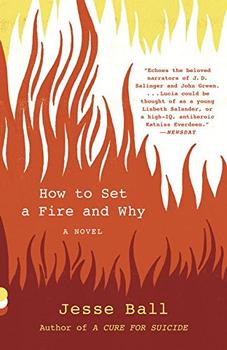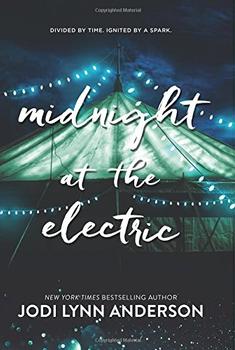There's nothing quite like that feeling of getting a brand-new book from the bookstore, taking it home and spending hours absorbed in its pages.
People used to talk about the imminent death of reading. The internet, it was thought, would kill the book industry. But old habits die hard, and the trusty American novel continues to give readers many hours of escapism.
In fact, according to Global English Editing's infographic on American reading habits published below, we're reading almost as much as we ever have.
Today, we look back on the incredible selection of books our members have reviewed for First Impressions during the year - 45 titles in total.
Reader reviews abound on the web these days but it's difficult to know which to trust, especially when there are businesses who will arrange for glowing "reader reviews" to be posted and other reviews may be written by well-meaning family and friends.
BookBrowse's First Impressions program offers you a source of trustworthy reader reviews because only BookBrowse members can post reviews. Members indicate which books they're interested in but cannot prioritize, and copies are assigned by BookBrowse's algorithms. So, while it's conceivable that somebody connected to the book might be assigned a copy, the chances of there being enough people to influence the overall consensus is effectively non-existent.
What better way to be sure a book is going to be right for your book club than being a fly on the wall at a real discussion - such as for the fifteen books we discussed in BookBrowse's Book Club during 2017 (with more than 3500 comments posted), or any of the approximate one hundred books that we've discussed over the past few years!
Dear BookBrowsers,
 BookBrowse's annual Best of the Year awards are an excellent barometer of great reading. The awards are particularly noteworthy because voting is only open to BookBrowse subscribers - so no vote stuffing by rabid fan bases; and instead of just voting for a book (which favors the most widely read books) subscribers rate each book they've read that is on the shortlist, and the winners are the books with the highest overall rating. Such considered selection results in truly outstanding books being feted every year. 2017 is no different in that regard. Over 7,000 votes were cast on 67 books (12 nonfiction, 51 fiction and 4 YA).
BookBrowse's annual Best of the Year awards are an excellent barometer of great reading. The awards are particularly noteworthy because voting is only open to BookBrowse subscribers - so no vote stuffing by rabid fan bases; and instead of just voting for a book (which favors the most widely read books) subscribers rate each book they've read that is on the shortlist, and the winners are the books with the highest overall rating. Such considered selection results in truly outstanding books being feted every year. 2017 is no different in that regard. Over 7,000 votes were cast on 67 books (12 nonfiction, 51 fiction and 4 YA).
 In How to Set a Fire and Why, Lucia claims to not remember exactly what occurred during an argument with her aunt's landlord, leaving her exact reasoning and motivation somewhat mysterious. In writing Lucia as an unreliable narrator, Jesse Ball draws from an established tradition.
In How to Set a Fire and Why, Lucia claims to not remember exactly what occurred during an argument with her aunt's landlord, leaving her exact reasoning and motivation somewhat mysterious. In writing Lucia as an unreliable narrator, Jesse Ball draws from an established tradition.
An unreliable narrator lies, expresses uncertainty or bias, or seems to have a misunderstanding of situations that occurred. The author may employ an unreliable narrator to intentionally mislead the reader or as a means of characterization. Part of the pleasure in encountering such a narrator is parsing out what is true and what is not. Teen and young adult narrators are some of the most obvious and well-known examples of the trope, and this makes logical sense. Adolescence is often a time of conflict, teenagers vacillate between uncertainty and confidence in their beliefs as they try to forge a concrete identity for themselves. They are often dishonest, caught as they are between childhood and adulthood, they push the limits, break the rules and lie to avoid punishment.
 In Midnight at the Electric, it is the year 2065, and teenager Adri is part of a carefully selected group departing Earth forever to live on Mars. Although the story takes place less than 50 years from now, massive planetary destruction has already taken place. As Adri puts it early on, "there's no Miami and hardly any Bangladesh and no polar bears…and they're paying billions of dollars to start a colony on Mars because humans need an exit strategy."
In Midnight at the Electric, it is the year 2065, and teenager Adri is part of a carefully selected group departing Earth forever to live on Mars. Although the story takes place less than 50 years from now, massive planetary destruction has already taken place. As Adri puts it early on, "there's no Miami and hardly any Bangladesh and no polar bears…and they're paying billions of dollars to start a colony on Mars because humans need an exit strategy."
Considered by some to be a sub-genre of science-fiction, and by others to be an entirely new genre, climate-fiction highlights climate change and its potential ramifications. Although books exploring man-made climate change date back to the '70s, it was only in 2007 that journalist Dan Bloom coined the term "cli-fi." Now, only one decade later, dozens of books fall under the definition of climate fiction, and the genre has seen an explosion in popularity.